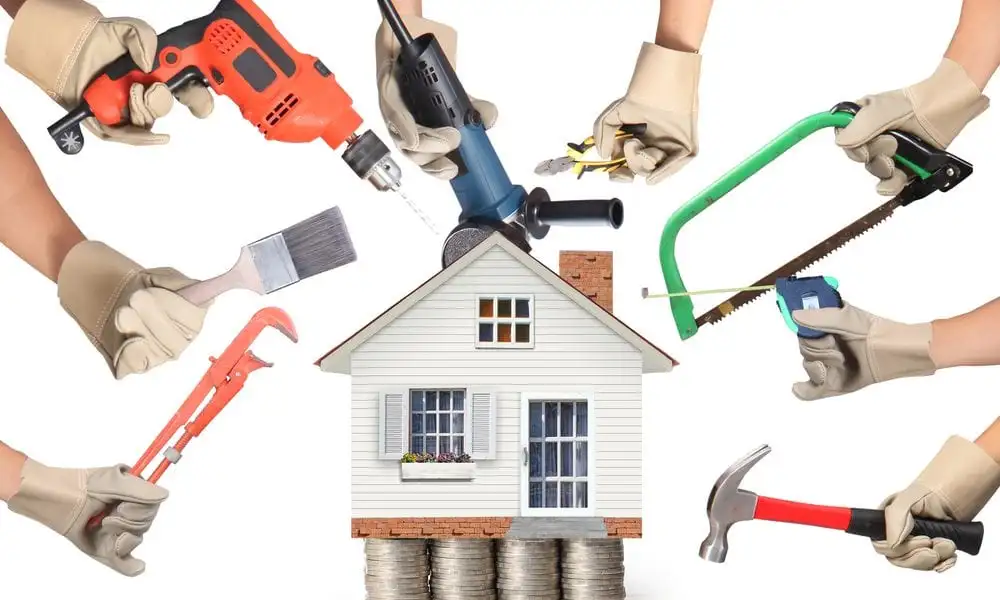When something goes wrong in your home — whether it’s an AC unit on the fritz, a persistent clog in the kitchen sink, or flickering lights — you need a home service company you can rely on. Choosing the right home service company matters because shoddy, unreliable service can mean wasted money, unnecessary headaches, and unsafe conditions in your own home.
Alternatively, the right home service company will not only fix your issues competently but also provide ongoing maintenance and support to prevent problems down the road. These experts will take the time to understand your needs and tailor solutions to serve you best.
“Finding a home services company that can provide an all-inclusive, tailored approach to your needs from beginning to end is the kind of service people deserve,” shares Melanie Powers, CEO of Goodberlet Home Services. “Nothing is more frustrating than having to call several different companies.”

Source: entrepreneur.com
Services offered
When seeking a home services company, Powers says homeowners should resist the temptation of choosing a provider specializing in only one area. Instead, they should look for those equipped to offer solutions across common needs like HVAC, plumbing, electrical, and more. Companies with a wider range of service capabilities are better positioned to provide whole-home care.
Companies that provide consolidated services will be better able to understand your home’s unique systems and needs. With extensive experience across disciplines, they can provide integrated recommendations considering how choices in one area, like installing new ductwork, might impact others, like electrical panel capacity. Consolidated providers also streamline coordination if multiple issues need concurrent fixing, letting you avoid the hassle of overseeing 3-4 specialized vendors who might (quite literally) trip over each other to get their part done.
Perhaps most importantly, a consolidated services provider can give tailored recommendations based on your overall home, not just the problem at hand. For instance, an AC specialist might push a brand new system when your 35-year-old furnace is the real culprit. On the other hand, a savvy whole-home provider can explain why a furnace upgrade better aligns with your budget and overall usage because they understand how systems interact and can give objective insights rather than skewed perspectives rooted in one specialty.
“Working with a single company for all home services allows you to develop a relationship rooted in familiarity,” shares Powers. “When emerging issues feel complex and stressful, you want to turn to pros you know and trust for the full picture. Consolidated services foster that dependability.”

Source: pymnts.com
Customer service
When inviting a home service company into your living space, customer care and communication should be top priorities. Beyond technical competency in fixing issues, the ideal provider walks you through the process patiently and takes time to understand your perspective.
According to Powers, some signs of standout service include:
- Care for your priorities: Top-notch providers start by asking questions to grasp your needs and preferences, not just the technical parameters. Before rattling off recommendations, they listen to concerns about budget, timing, special needs, and beyond to craft tailored solutions.
- Patience answering questions: Quality companies recognize home repairs cause stress and uncertainty for many. They patiently answer all questions, avoid industry jargon, and use clarity over complexity in explanations. If you don’t understand something, they’ll circle back and re-explain it in simpler terms.
- Seamless experience: From the initial quote through project completion, communication with a home service provider should set clear expectations and consistently meet or exceed them. Look for one point of contact to liaise throughout.
- Follow-up care: Repairs shouldn’t end the relationship. Quality companies will follow up after repairs are made and recommend optimized maintenance plans personalized for your home. This proactive support helps safeguard your home against future issues.
In short, a quality home services provider sees you as a unique person with distinct needs — not just a job order with standardized requirements. “Taking extra time to tailor communications and recommendations to you signifies a provider who genuinely cares about your experience during repairs and beyond,” notes Powers.

Source: insurancetiger.ca
Qualifications
When assessing a home service company, start by confirming proper licensure and certification for the types of work to be performed. Reputable firms will gladly provide documentation of qualifications like:
- Trade licenses: Most states require special licenses for plumbers, electricians, HVAC technicians, and related tradespeople to operate legally. Licenses signify proper training and testing protocols administered by your state.
- Industry certifications: Trade groups like HVAC Excellence offer certificate programs requiring proven specialty competence. While voluntary, these show commitment to quality.
- Insurance Coverage: Both general liability and workmanship/warranty coverage protect you financially in the unlikely case of damages or defects. Never hire uninsured contractors for service or repairs.
- Staff credentials: Technicians should have adequate practical training and a grasp of building codes/safety standards. Where able, choose companies that hire certified professionals over general handymen.
Checking credentials takes little effort but provides immense peace of mind and signifies a business’s transparency. Firms who balk at disclosing licenses, certs, insurance paperwork, and related items likely struggle to meet industry standards.
Conversely, reputable companies will prove their qualifications upfront because they know how crucial it is that homeowners trust their team’s approach to working expertly and ethically. Don’t hesitate to ask questions in this regard.

Source: embedsocial.com
Reputation
When selecting any service provider to invite into your home, reputation matters greatly. Beyond verifying licenses and certifications, spend time researching company reputations through online review websites. These aggregate customer comments reveal common grievances or kudos that identify issues that are not evident upfront. Speaking to people in your local area who have direct experience with the company can also highlight insights on work quality, responsiveness, follow-up care, and more.
While no contractor satisfies every customer, patterns will typically emerge in multiple reviews that help separate quality providers from poor ones. Look for companies featuring largely positive commentary on responsiveness, delivering within budget, smoothing the process, and prioritizing homeowner education. These hallmarks of reputability signify a partner who won’t simply finish the technical work but leaves you feeling fully supported before, during, and after service.
Choosing such a provider may initially take more diligence through discerning questions and reference checks. “Your careful selection process will be better overall by reducing cost overruns, improving direct communication, and increasing property safety and integrity,” says Powers. “Investing more upfront in a reputable partner fosters quality work today and trusted support for years to come as new needs emerge.”
